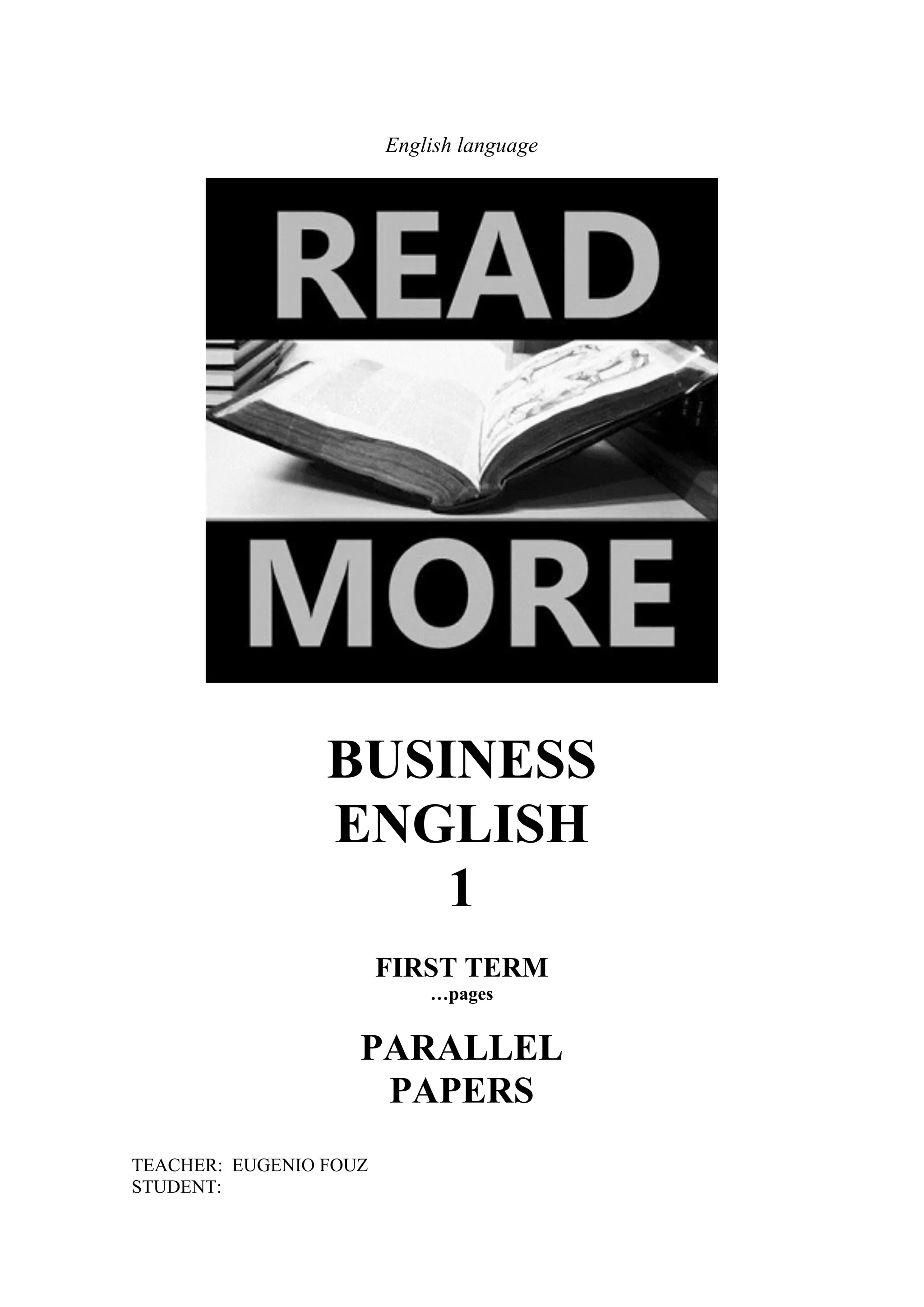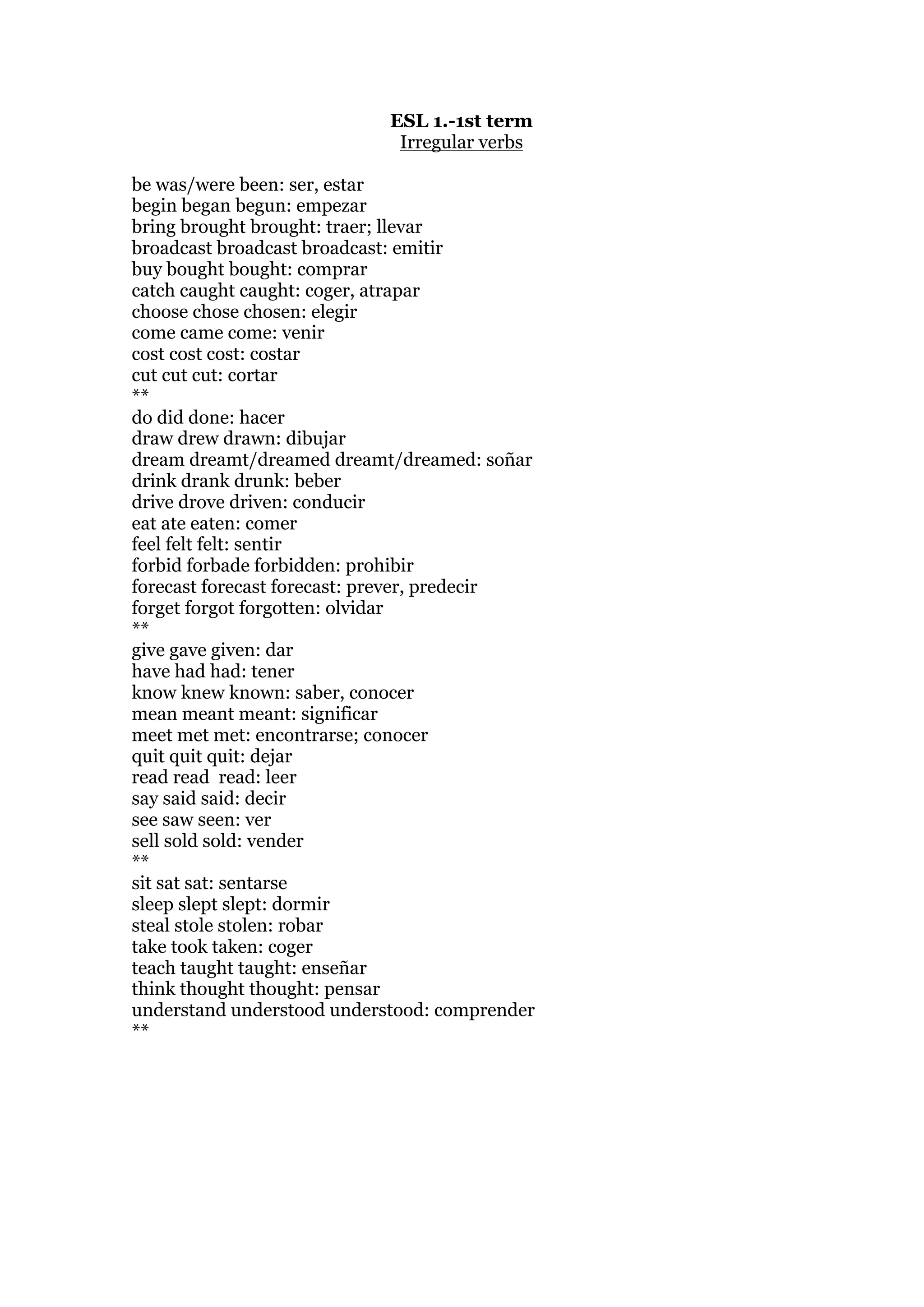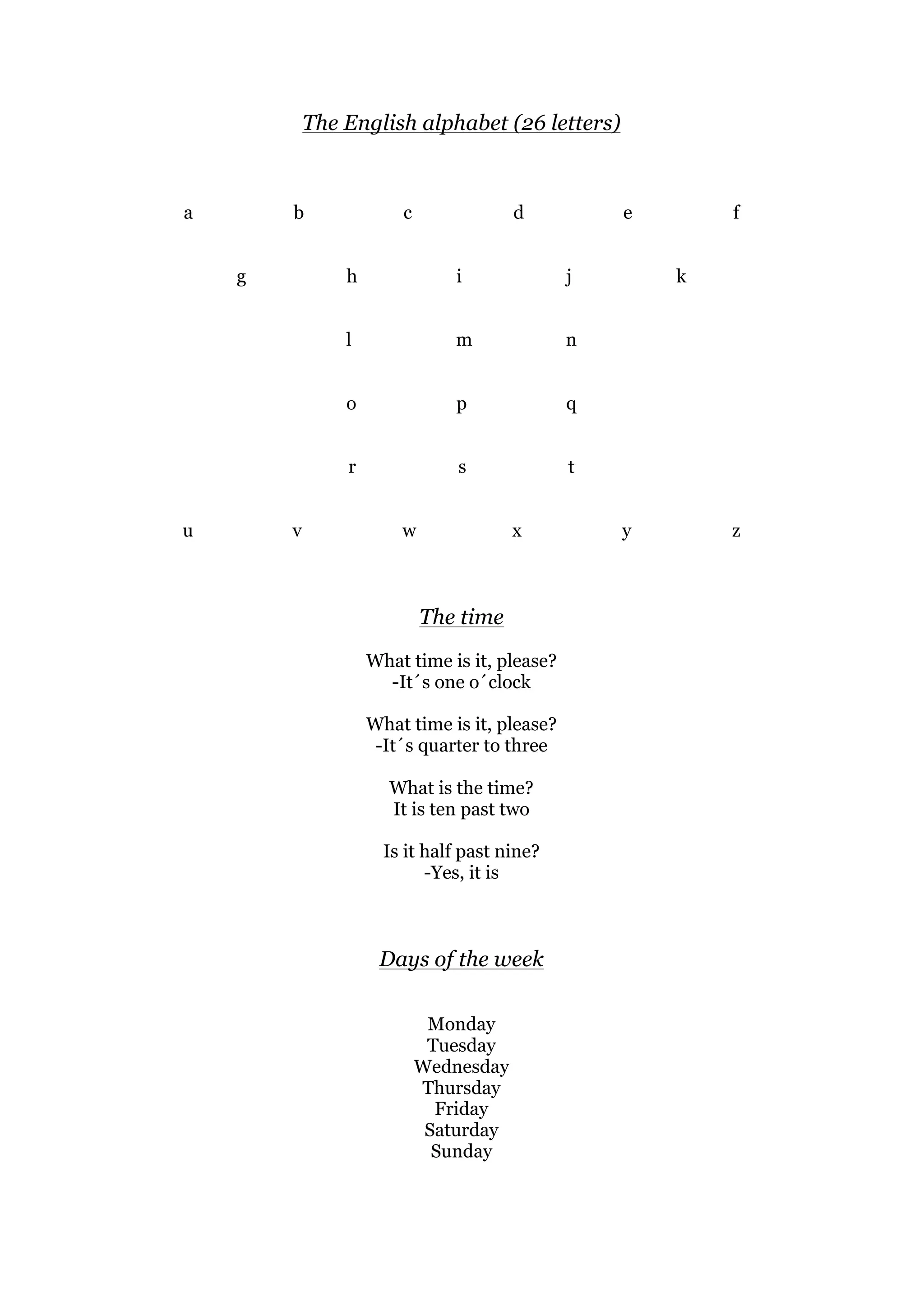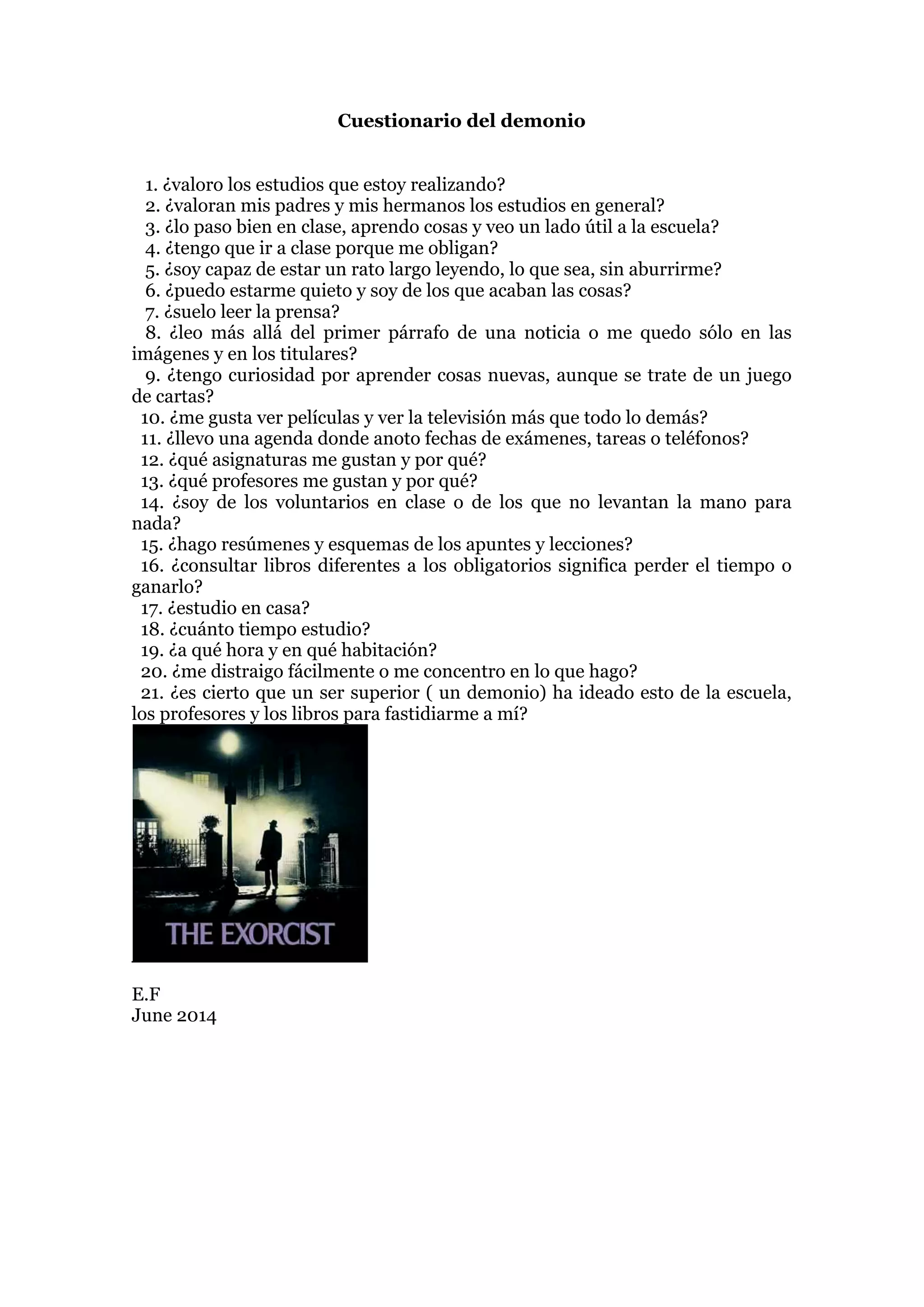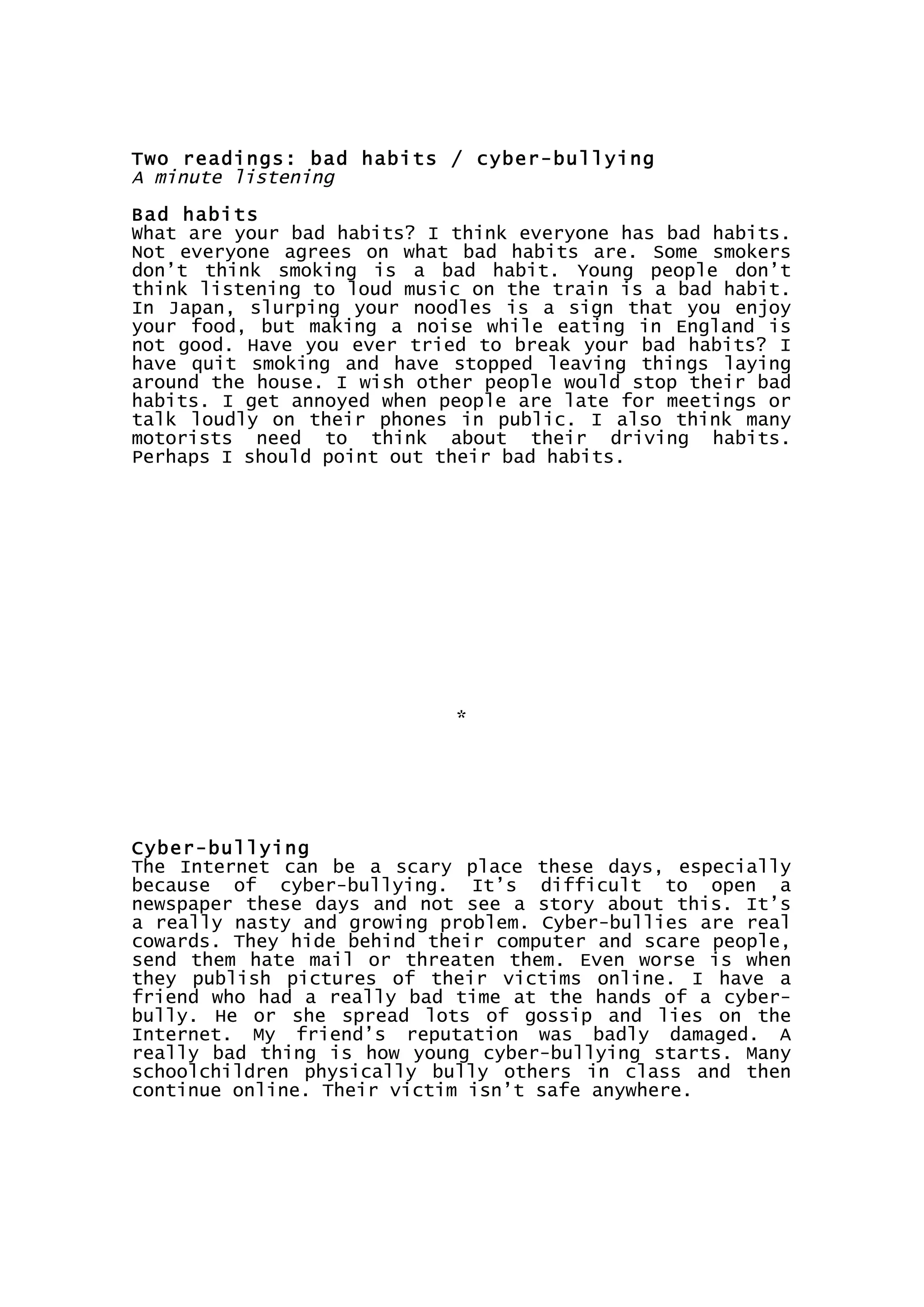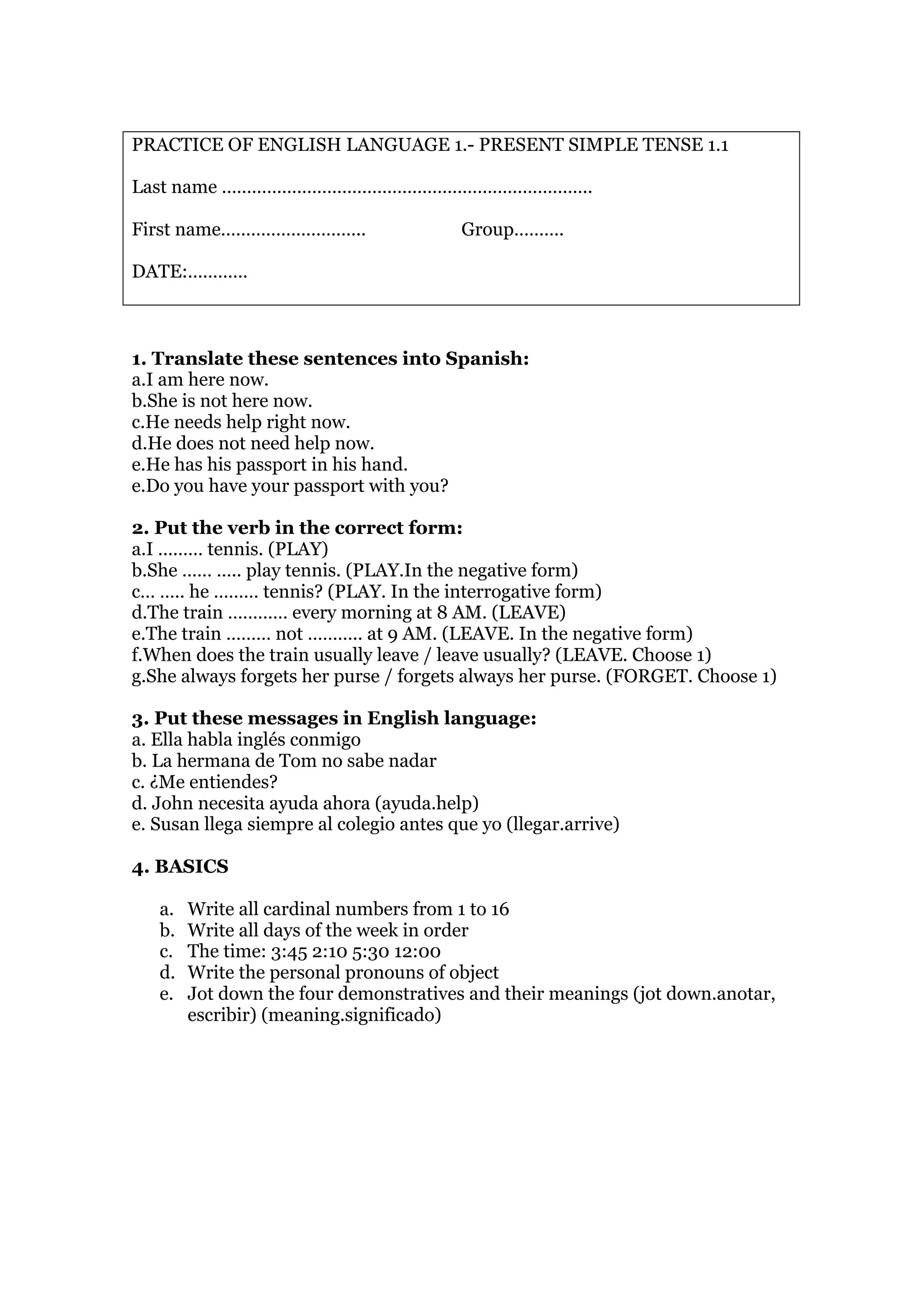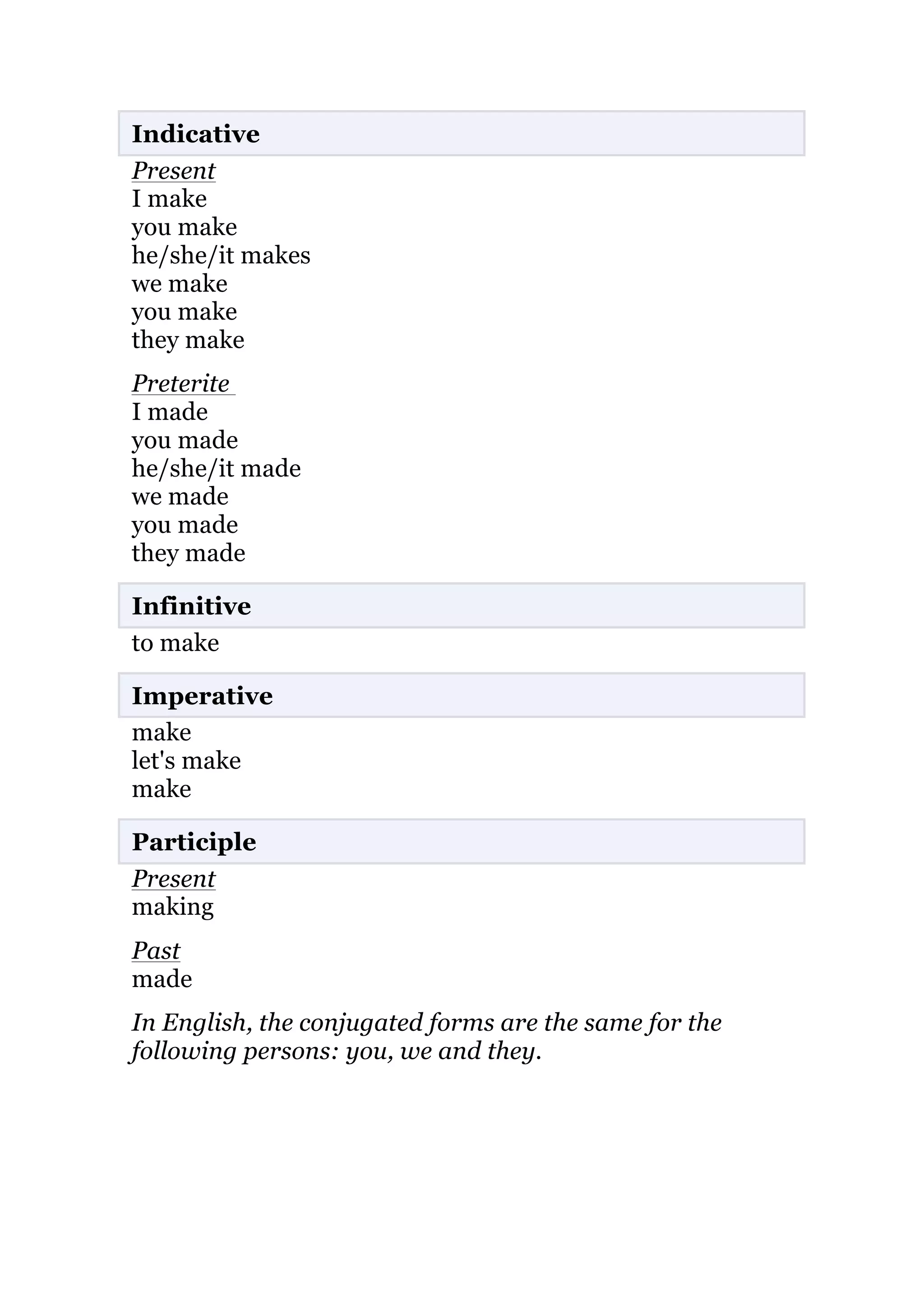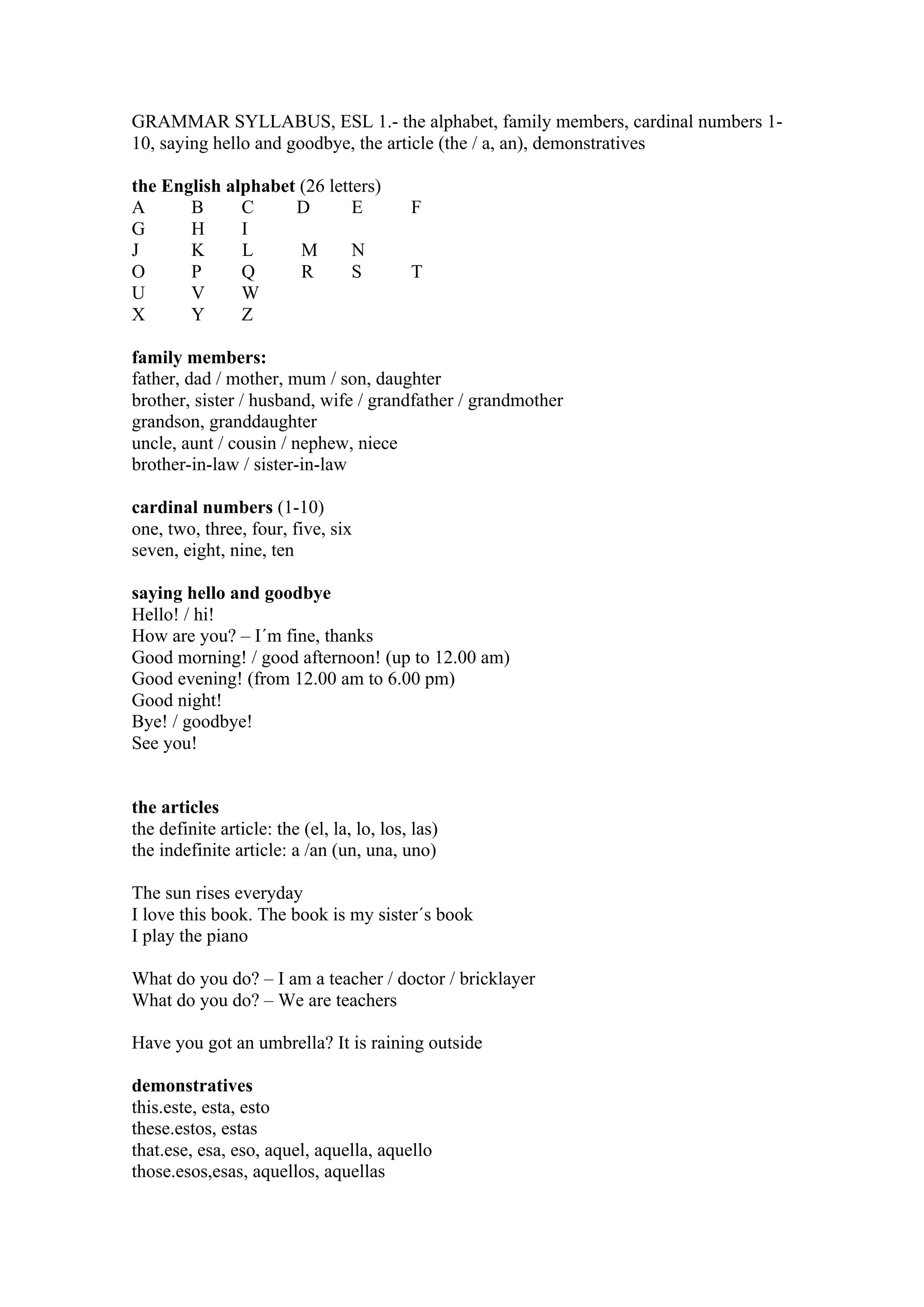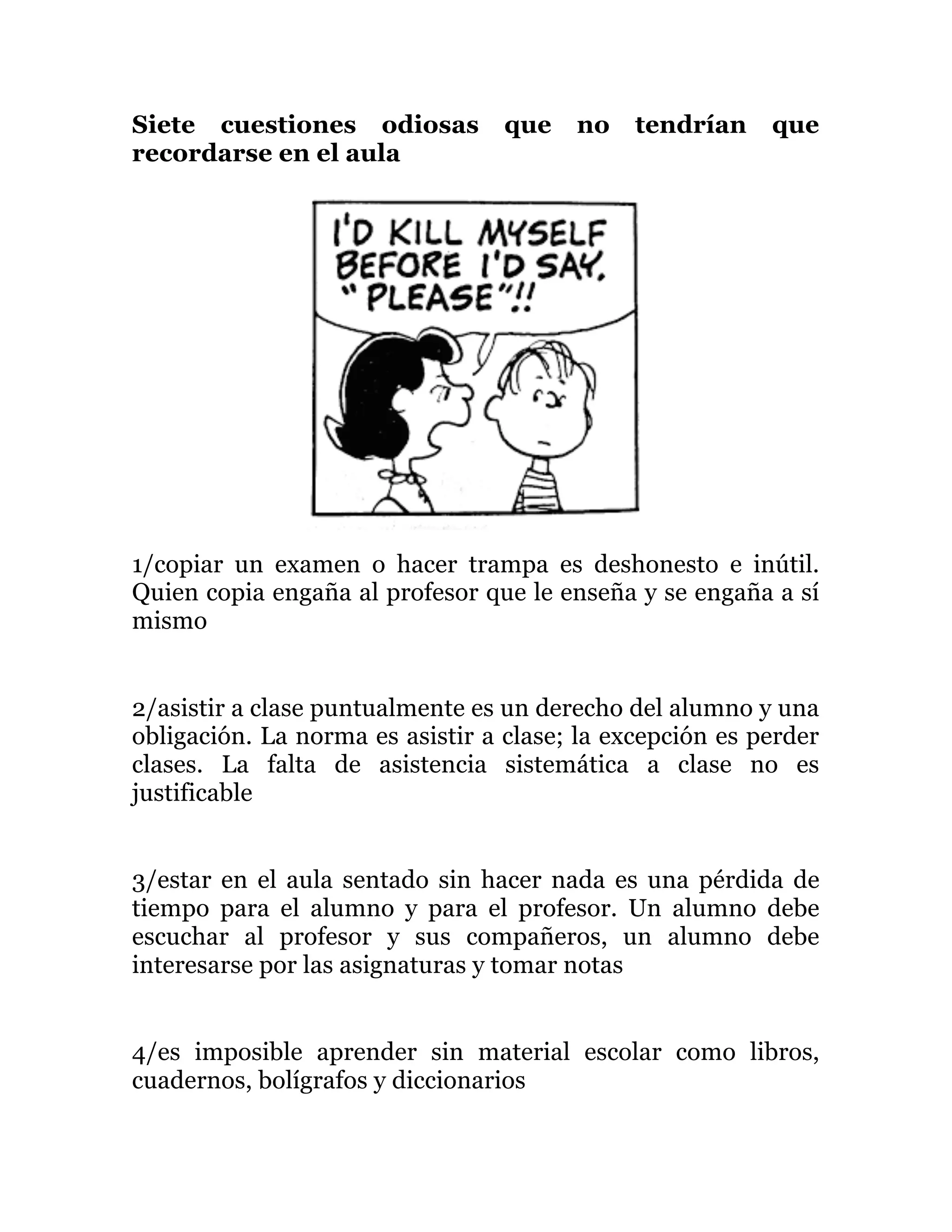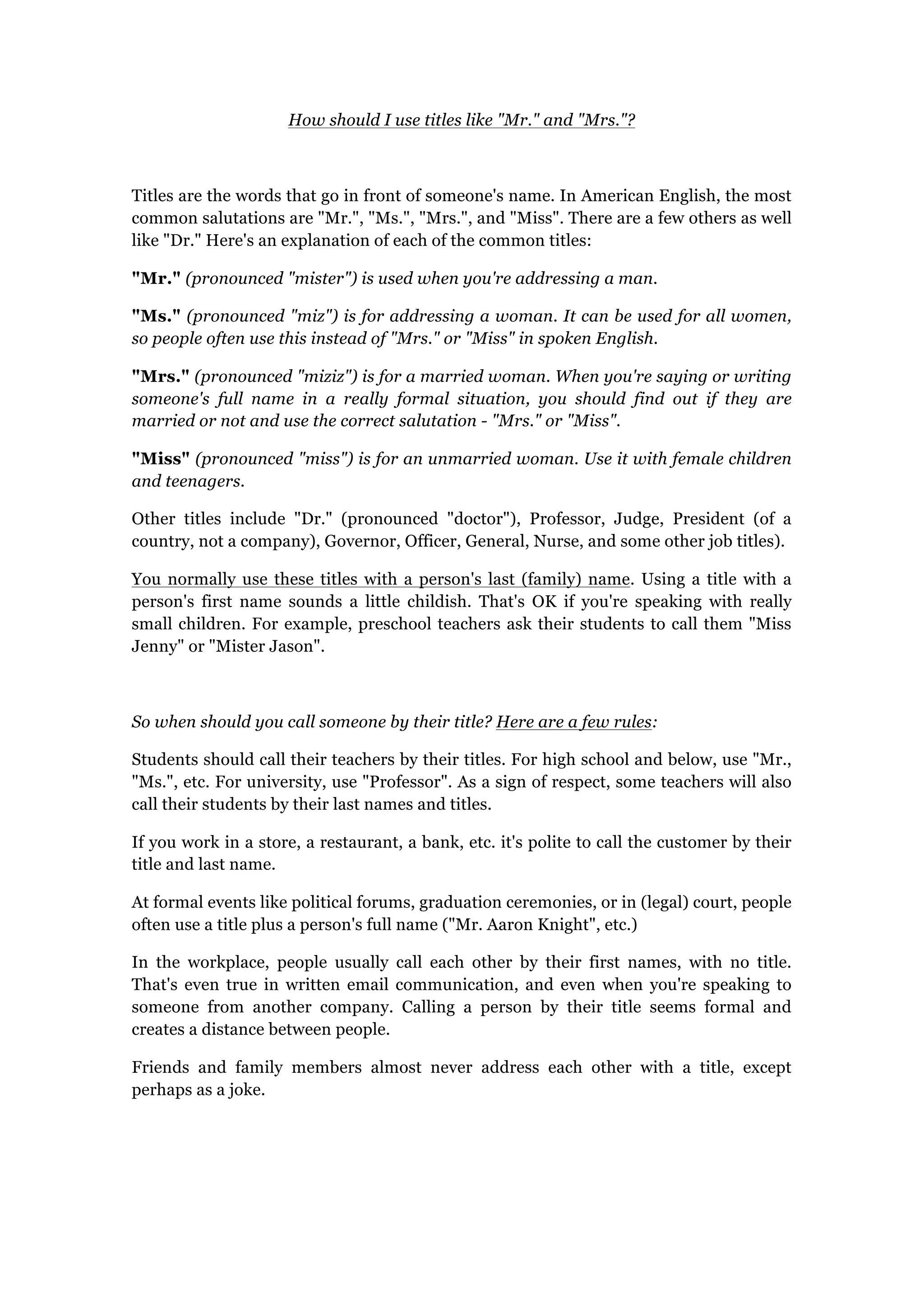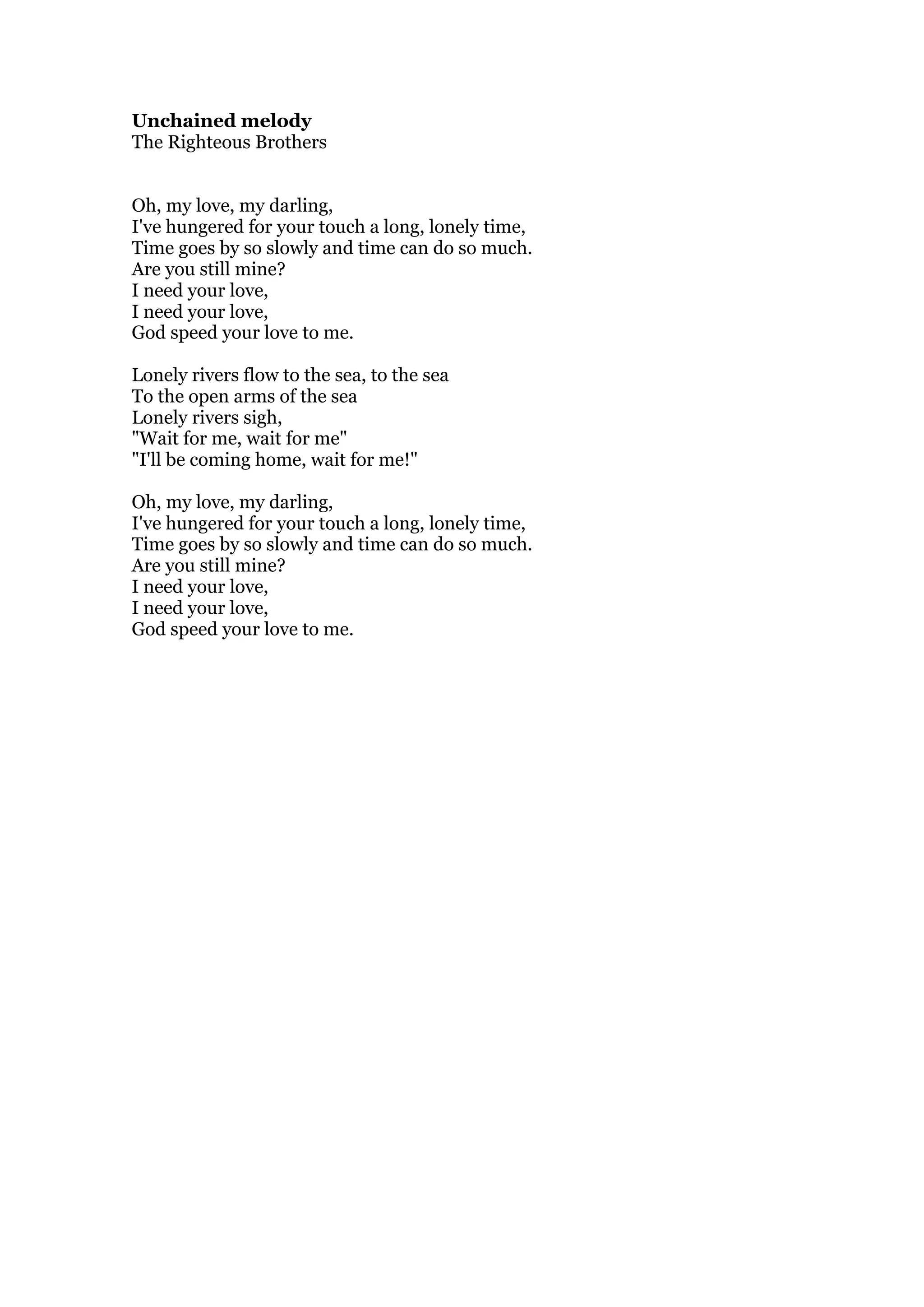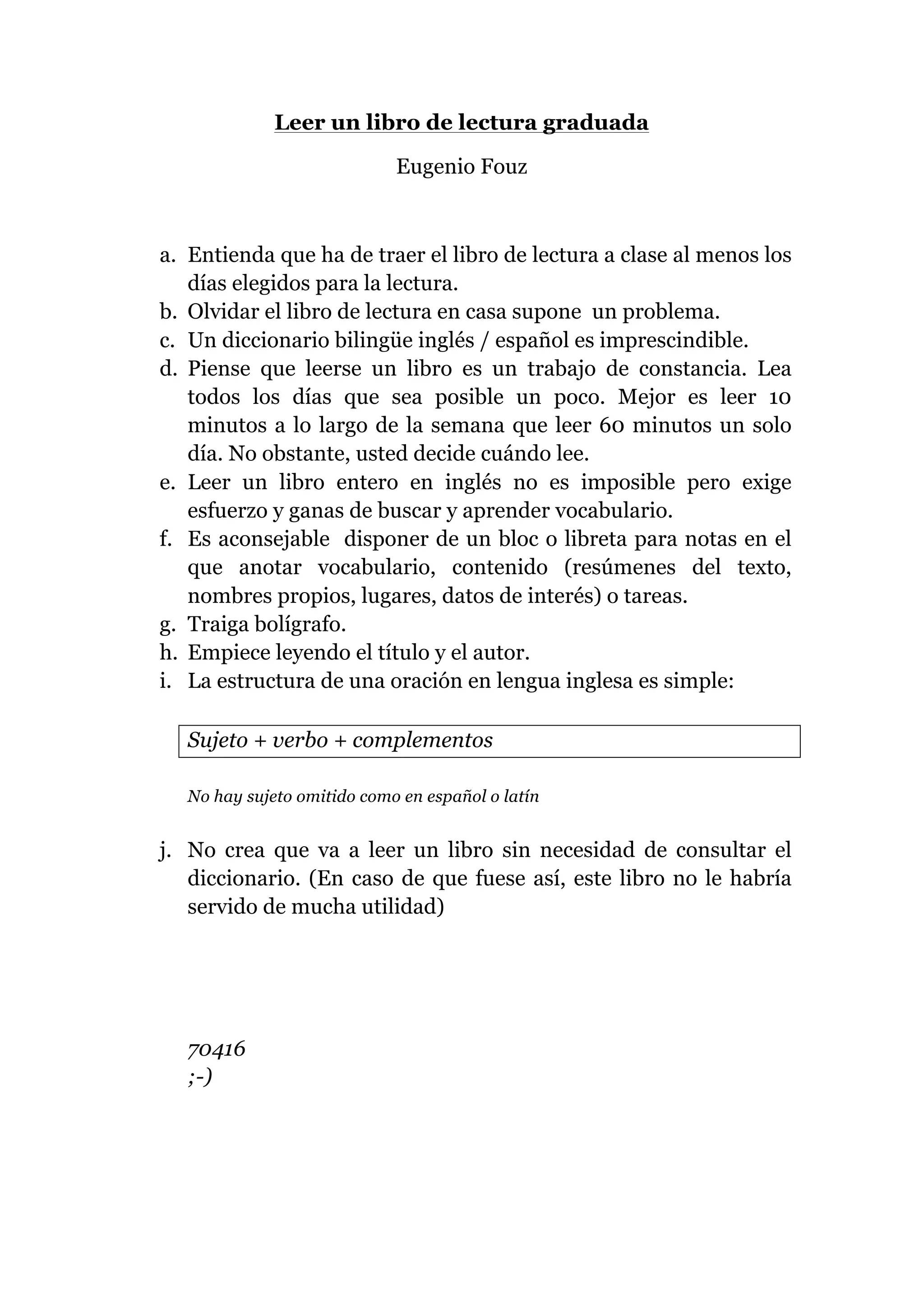This document contains an English language syllabus for ESL level 1 students. It includes sections on regular and irregular verbs, the alphabet, days of the week, numbers, and functional English phrases for greetings, farewells, and asking questions. Grammar topics covered are personal pronouns, ordinal numbers, telling time, seasons, and conjugating verbs in the present simple tense. The document provides essential vocabulary and concepts for beginning English language learners.
